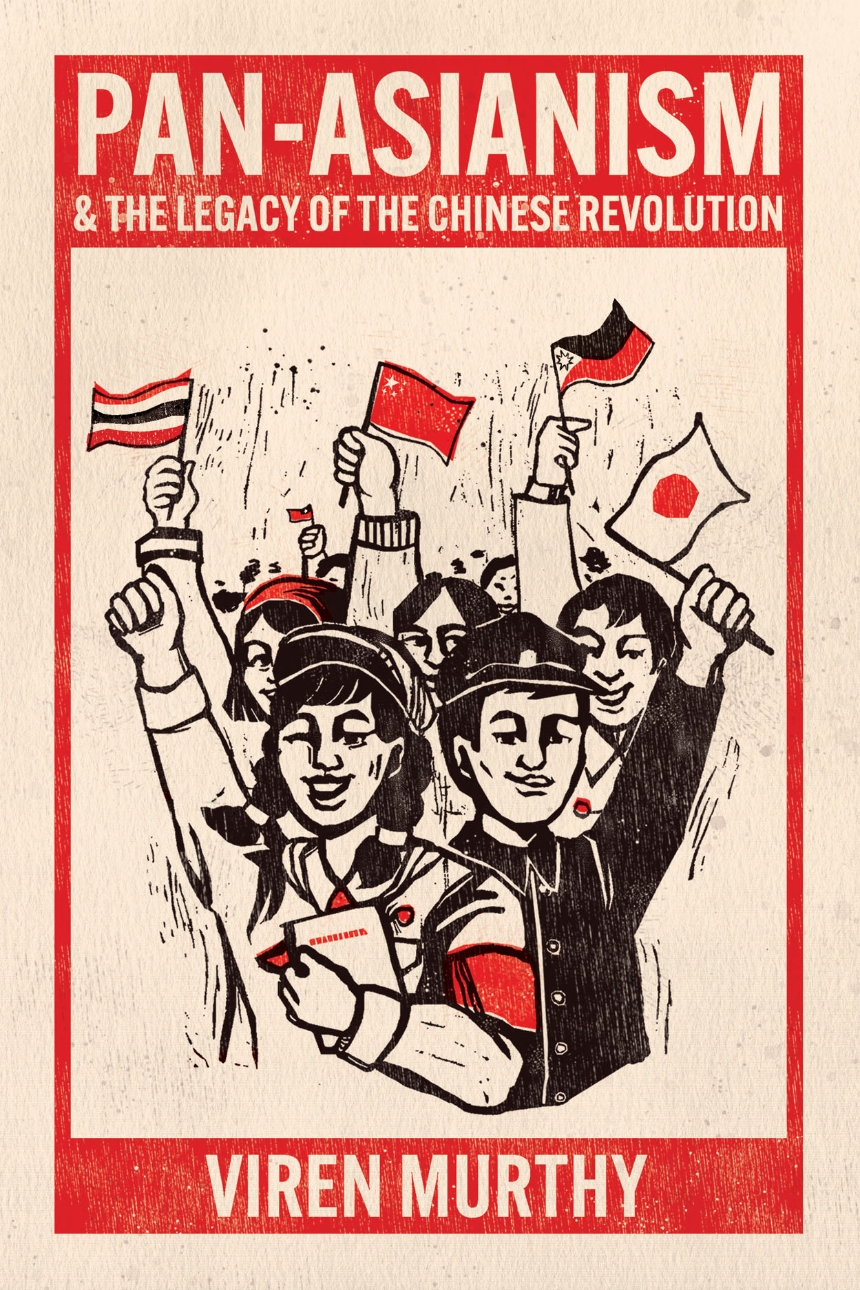Pan-Asianism and the Legacy of the Chinese Revolution
An intellectual history of pan-Asianist discourse in the twentieth century.
Recent proposals to revive the ancient Silk Road for the contemporary era and ongoing Western interest in China’s growth and development have led to increased attention to the concept of pan-Asianism. Most of that discussion, however, lacks any historical grounding in the thought of influential twentieth-century pan-Asianists. In this book, Viren Murthy offers an intellectual history of the writings of theorists, intellectuals, and activists—spanning leftist, conservative, and right-wing thinkers—who proposed new ways of thinking about Asia in their own historical and political contexts. Tracing pan-Asianist discourse across the twentieth century, Murthy reveals a stronger tradition of resistance and alternative visions than the contemporary discourse on pan-Asianism would suggest. At the heart of pan-Asianist thinking, Murthy shows, were the notions of a unity of Asian nations, of weak nations becoming powerful, and of the Third World confronting the “advanced world” on equal terms—an idea that grew to include non-Asian countries into the global community of Asian nations. But pan-Asianists also had larger aims, imagining a future beyond both imperialism and capitalism. The fact that the resurgence of pan-Asianist discourse has emerged alongside the dominance of capitalism, Murthy argues, signals a profound misunderstanding of its roots, history, and potential.
Recent proposals to revive the ancient Silk Road for the contemporary era and ongoing Western interest in China’s growth and development have led to increased attention to the concept of pan-Asianism. Most of that discussion, however, lacks any historical grounding in the thought of influential twentieth-century pan-Asianists. In this book, Viren Murthy offers an intellectual history of the writings of theorists, intellectuals, and activists—spanning leftist, conservative, and right-wing thinkers—who proposed new ways of thinking about Asia in their own historical and political contexts. Tracing pan-Asianist discourse across the twentieth century, Murthy reveals a stronger tradition of resistance and alternative visions than the contemporary discourse on pan-Asianism would suggest. At the heart of pan-Asianist thinking, Murthy shows, were the notions of a unity of Asian nations, of weak nations becoming powerful, and of the Third World confronting the “advanced world” on equal terms—an idea that grew to include non-Asian countries into the global community of Asian nations. But pan-Asianists also had larger aims, imagining a future beyond both imperialism and capitalism. The fact that the resurgence of pan-Asianist discourse has emerged alongside the dominance of capitalism, Murthy argues, signals a profound misunderstanding of its roots, history, and potential.
288 pages | 6 x 9 | © 2023
Asian Studies: General Asian Studies
History: Asian History, History of Ideas
Reviews
Table of Contents
Introduction: Pan-Asianism in the Short Twentieth Century
Chapter One: Asia as Pharmakon: The Early Constitution of Asia as Resistance
Chapter Two: The Critique of Linear Time: Pan-Asianism in Early Twentieth-Century China
Chapter Three: Asia as Anticapitalist Utopia: Ōkawa Shūmei’s Critique of Political Modernity
Chapter Four: Takeuchi Yoshimi, Part I: Rethinking China as Political Subjectivity
Chapter Five: Takeuchi Yoshimi, Part II: Pan-Asianism, Revolutionary Nationalism, and War Memory
Chapter Six: Wang Hui: Contemporary Pan-Asianist in China?
Epilogue: Pan-Asianism, the Chinese Revolution, and Global Moments
Acknowledgments
Notes
Bibliography
Index
Chapter One: Asia as Pharmakon: The Early Constitution of Asia as Resistance
Chapter Two: The Critique of Linear Time: Pan-Asianism in Early Twentieth-Century China
Chapter Three: Asia as Anticapitalist Utopia: Ōkawa Shūmei’s Critique of Political Modernity
Chapter Four: Takeuchi Yoshimi, Part I: Rethinking China as Political Subjectivity
Chapter Five: Takeuchi Yoshimi, Part II: Pan-Asianism, Revolutionary Nationalism, and War Memory
Chapter Six: Wang Hui: Contemporary Pan-Asianist in China?
Epilogue: Pan-Asianism, the Chinese Revolution, and Global Moments
Acknowledgments
Notes
Bibliography
Index
